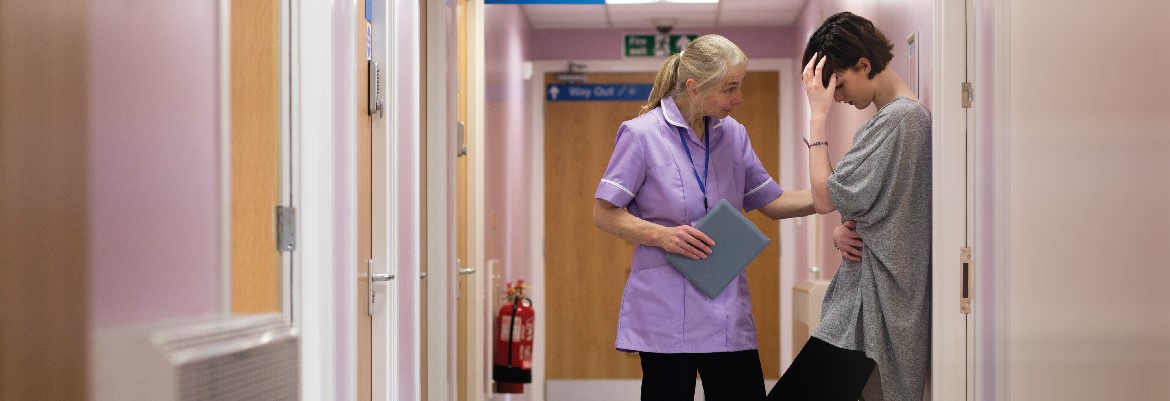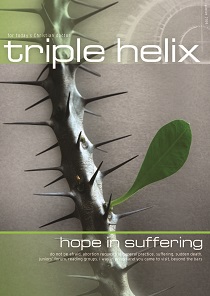Sudden death is an important topic to consider from a Christian perspective. Terrorist atrocities (such as Westminster, Manchester, London Bridge) and the Grenfell Tower disaster bring the matter into stark relief. In my professional life, working with a Helicopter Emergency Medicine Service (HEMS) and in an Emergency Department, I am sadly well acquainted with sudden death.
I have often been asked 'Do you get used to dealing with sudden death?' The answer is both 'yes' and 'no'. Yes, because you develop strategies to help you manage challenging situations and to deliver the worst news. No, because I don't think you ever get used to the raw human grief that cascades from loved ones when they hear those irrevocable words that their child, parent, partner, brother or sister has died.
Over the years the sense of injustice and anguish often associated with sudden death has caused me to struggle with my faith. Along this journey a few observations have helped me.
Reflections on sudden death
Humans as spiritual beings
It took me a while to rationalise that death is an absolute transition. At the point of death, when the last breath has been taken, the person is gone - replaced by the empty shell of a former life, devoid of spirit. Breath is fundamental to life. The Hebrew word ruach means wind, breath, spirit of God or the Holy Spirit. (pneuma is the corresponding Greek word.) Ruach is also used in reference to breath or the human spirit. (1) Similarly, the soul appears to be another deeply spiritual part of us. Often in the Scriptures, references to the soul are linked to the heart, anguish, rejoicing, yearning and finding rest. It is the part of our inner being where we relate to God. With the departure of the spirit, the person ceases to be the person; all that is left is the physical body.
Transition from body to person
Another question is whether there is a feeling of detachment during resuscitation. Again, my answer would be both 'yes' and 'no'. On the one hand, there is little cognitive space to consider 'who' it is you are resuscitating; you have a job to do. Whilst resuscitating, the individual seems to have no context. However, you soon become aware of that individual's connection to people or places. Then the individual becomes a person, with family, life and purpose.
This can happen in unexpected ways. It is now common for an individual's phone to ring whilst you are resuscitating them, or after they have died. The phone bears the caller's identification, the parent, partner or significant other, who will soon be confronted by a starkly, different reality. It is a moment of connection that is both tangible and surreal.
Lessons for life
Keep short accounts
I have lost count of the times that loved ones have mentioned their regret at parting on poor terms. The issue that caused an unresolved argument is often so trivial in the greater scheme of life. Their lives have changed forever by the sudden death of their loved one. So often their grief is made worse by the feeling of guilt and regret, the parting words perhaps sharp, cutting and negative (rather than affirmative) were the last words shared.
Comfort those who mourn
This is one of the greatest privileges, as well as challenges, of my job: to be there at times of absolute devastation and to provide comfort. For the individual who has died there is little more that can be done; the focus now is on those who cared for them. I think by now I have witnessed every possible reaction to sudden death; anger, denial, verbal and physical outbursts, disbelief and overwhelming grief to name a few. I will never get used to that rawness of human reaction. This is testament to the power of love between humans, of the spiritual roots of our connections to one another.
I am always struck by the passage in Scripture where Jesus weeps about the death of Lazarus. (2) He knew that he would raise him from the dead, and yet he wept with those who mourned. I have witnessed many senior colleagues weep with families in the resus room. Of course, uncontrollable grief would not be appropriate, but there is something important about human connection and sharing sadness even when you have not known the person.
Providing comfort and human connection can be difficult depending on the nature or circumstances of death. For example, we are sometimes treating both the perpetrator of an alleged crime and the victim. I have often had to remind myself that the perpetrator is also made in the image of God and dearly loved by him.
Perhaps some of the most challenging times have been supporting people who are on their own as they die. Holding the hand of a person who is dying is perhaps one of the greatest privileges of our roles. There are individuals, who have no significant other to be with them, just a legal guardian to inform of their passing.
Celebrating individuals
I have attended a number of funerals of people I know. Some had died suddenly, others after short illnesses. Whilst often these have been celebrations of life, there is a tangible difference between those who died with a faith and those who did not; a difference in sense of hope and finality.
I am always struck by the words of affirmation shared, of admiration and value made clear in the eulogies and stories told about the person who has passed away. Did those individuals know how much they were loved and celebrated? Do people really know what we think of them and how we value them? Certainly, my experience of the fragility of human existence has driven me to be clearer in my affirmation of others and to express what they mean to me.
Making sense of sudden death
Unanswered questions about suffering and sudden death caused me to question my faith. The suffering and pain seemed juxtaposed to the concept of a loving God who is in control of the world. But I concluded that rather than these concepts being incongruous, it is only through faith in a God of love, who is in control of this world that you can make any sense of sudden death or draw any comfort from it. For without faith, one is left with no hope, no sense of purpose, just a sense of futility. That this fragile human existence is all that there is. If that were the case, what would be the point of life?
Job, who suffered extraordinarily, often asked God 'Why?' (3) He never got the answer he was looking for. (4) I have become more at ease with knowing that there are many questions that I will not receive the answer to in this life. I am more comfortable with those 'grey' areas.
Am I still saddened by sudden death? Does it still trouble me? Yes to both, but I draw great comfort from two Bible passages in particular:
'For I am convinced that neither death nor life, neither angels nor demons, neither the present nor the future, nor any powers, neither height nor depth, nor anything else in all creation, will be able to separate us from the love of God that is in Christ Jesus our Lord.' (Romans 8:38-39)
We have hope that we will see again those we love and who share our faith and who have been parted from us by death. We will also experience a new heaven and a new earth:
'...Look! God's dwelling-place is now among the people, and he will dwell with them. They will be his people, and God himself will be with them and be their God. 'He will wipe away every tear from their eyes. There will be no more death' or mourning or crying or pain, for the old order of things has passed away.' (Revelation 21:3-4)
Dealing with death is a reality in our roles as healthcare professionals, how we respond to it and how it affects each one of us will be different. Considering sudden death and learning from it has been part of my journey. I hope these reflections in some small way, help you as you face life's challenges ahead.
Rob Crouch is a Consultant Nurse/Hon Professor of Emergency Care in the Emergency Department, Southampton General Hospital
A longer version of this article originally appeared in Spotlight in autumn 2017































